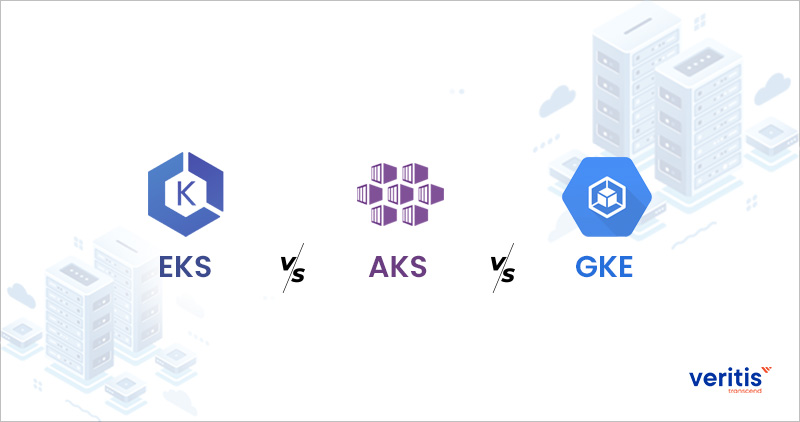
The choice between AKS vs EKS vs GKE, offered by AWS, Azure, and Google, respectively, depends on your specific needs and cloud provider. EKS is best for AWS integration, AKS for Azure, and GKE for Kubernetes expertise. Consider your cloud strategy and required features for the right fit.
EKS, with its seamless integration into the AWS ecosystem, is a solid choice for organizations already heavily invested in AWS services and infrastructure. Conversely, AKS excels at integrating with Azure, making it a preferred option for Azure-centric environments. GKE is a top choice for those seeking Kubernetes expertise and Google Cloud’s robust performance. It’s essential to align your cloud strategy and specific requirements with these platform strengths to select the most suitable Kubernetes workloads.
Kubernetes is one of the most used tools across the IT industry now. Developers have favored Kubernetes since its inception, and people worldwide are propelling innovation with this open-source platform.
In 2023, the landscape of managed Kubernetes services is characterized by three primary players, each with its distinct offerings. Amazon Elastic Kubernetes Service (EKS), part of Amazon Web Services (AWS), commands a 30% market share and caters to 2 million customers. It operates in 200+ regions across 400+ availability zones and supports the same range of Kubernetes versions. EKS stands out with features like Fargate for Kubernetes, integration with AWS CloudFormation, and robust support for AWS hybrid and multi-cloud deployments.
On the other hand, Azure Kubernetes Service (AKS), provided by Microsoft Azure, boasts a 20% market share and serves a customer base of 1.5 million users. It is available in 145+ regions and 300+ availability zones, supporting Kubernetes versions from 1.16.8 to 1.23.0. Its notable features include Serverless Kubernetes, tight Azure DevOps integration, and Azure hybrid and multi-cloud deployment support.
Meanwhile, Google Kubernetes Engine (GKE), offered by Google Cloud, holds the lion’s market share at 40% and serves a vast customer base of 3 million users. It is available in 220+ regions and 400+ availability zones, supporting Kubernetes versions from 1.16.8 to 1.23.0. Notable features of GKE include Anthos for Kubernetes, integration with Google Cloud Build, and strong support for Google Cloud hybrid and multi-cloud deployments. These statistics are derived from the official websites of Microsoft Azure, AWS EKS, and Google Cloud.
Despite its challenges, Kubernetes or K8s have captured the attention of top-notch tech providers as AWS, Azure, and Google Cloud have all released Kubernetes offerings. In this blog, we shall pit all three offerings, AKS vs EKS vs GKE against each other and see which is best for you.
What is Managed Kubernetes Service?
Managed Kubernetes is a cloud-based service that provides a fully managed Kubernetes environment. This means that the cloud service provider takes care of all the tasks involved in setting up, running, and maintaining a Kubernetes cluster, such as:
- Provisioning and managing the underlying infrastructure (nodes, networking, storage, etc.)
- Installing and configuring Kubernetes
- Applying security updates and patches
- Monitoring and troubleshooting the cluster
- Providing support to users
Managed Kubernetes services can run various containerized applications, including microservices, web applications, and batch jobs. They offer many advantages over self-managed Kubernetes, including:
- Reduced Complexity and Overhead: Managed Kubernetes services eliminate the need to set up and manage your own Kubernetes cluster. This can free up your team to focus on developing and deploying applications.
- Improved Reliability and Scalability: Managed Kubernetes services are designed to be highly reliable and scalable. They can automatically scale your cluster up or down based on demand and gracefully handle failures and other disruptions.
- Enhanced Security: Managed Kubernetes services typically include many security features, like encryption, access control, and intrusion detection. This can help to protect your applications and data from unauthorized access.
Some of the most popular managed Kubernetes services include:
- Amazon Elastic Kubernetes Service (EKS)
- Google Kubernetes Engine (GKE)
- Azure Kubernetes Service (AKS)
- DigitalOcean Kubernetes
Google’s Kubernetes Engine (GKE)
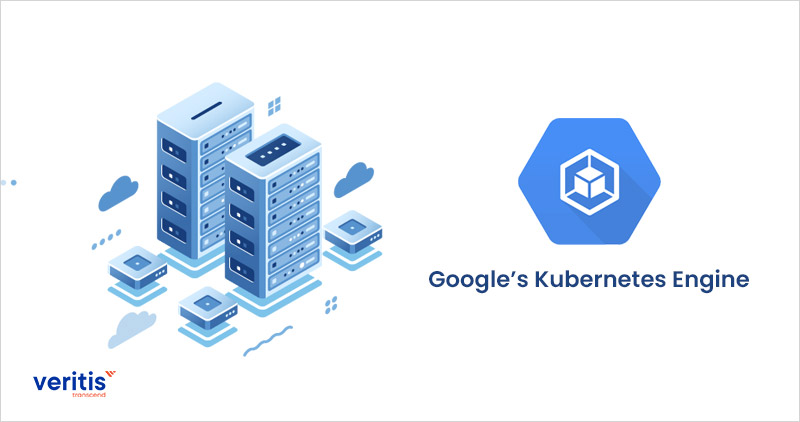
Launched in 2014, Kubernetes traces its origins to Google, the American giant that created it. GKE is the industry’s first fully managed K8s service, allowing customers to execute 4-way autoscaling K8s API and enjoy multi-cluster support.
It is one of the most advanced K8s management tools as it strong-arms its customers to manage the containers and scale them using Google infrastructure. In addition, GKE is fortified with Identity and Access Management features that allow its customers to protect their sensitive workloads better. The engine also packs an auto-repair feature, which fixes a damaged node when it runs health checks.
Useful Link: What are the Differences Between Amazon ECS vs EKS?
Azure Kubernetes Service (AKS)
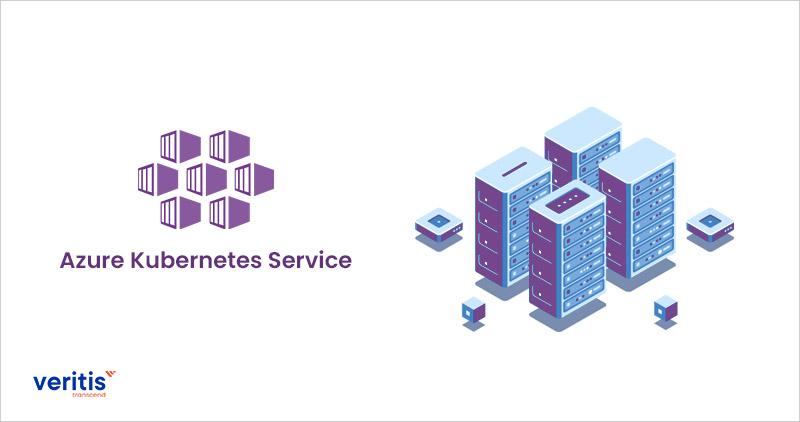
Once Microsoft appreciated the significance of K8s, they released AKS in mid-2018. With GKE, customers can host and manage their containers using AKS. In addition, it provides serverless K8s infrastructure, which can support continuous integration or delivery (CI/CD).
A big win for AKS customers is developing and deploying solutions compatible with Microsoft products. Given its global footprint and wide usage, it is no wonder that AKS is the most geographically available tool compared to competitors.
Azure Container Service made this product possible, whose DNA was integrated with AKS Kubernetes. The former tool was popular as it propped K8s, Apache Mesos, and Docker Swarm.
Useful Link: AWS Vs Azure Vs GCP – The Cloud Platform of Your Choice?
AWS’s Elastic Kubernetes Service (EKS)
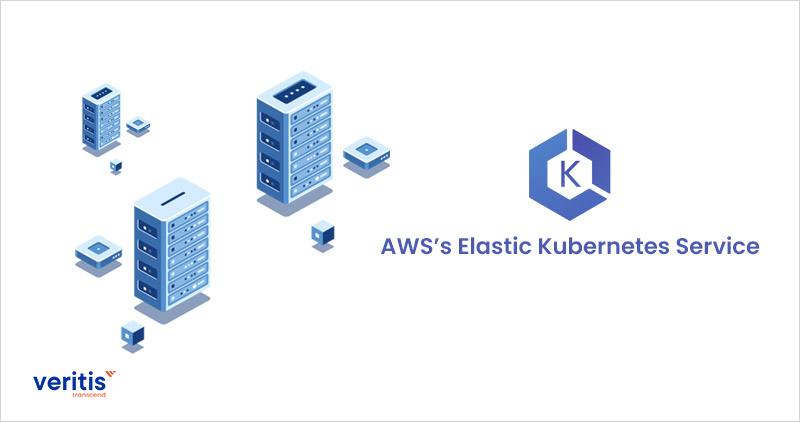
It is no secret that AWS has the most significant global cloud footprint, and Amazon had the arduous challenge of building a K8s tool that could support a broad user base. In June 2018, AWS AKS made EKS generally available for all. EKS Kubernetes is not dissimilar to AKS and GKE as it supports the swift development and deployment of applications based on Kubernetes. While Azure may have the most prominent geographical ability, EKS vs AKS rides on AWS’s coattails, the world’s largest cloud.
Useful Link: A Guide to DevOps Implementation on Google Cloud
EKS Kubernetes allows users to build and manage K8s containers with existing resources. Additionally, AWS AKS has developed Karpenter, a K8s open-source project that supports just-in-time computations (but more on Karpenter in another blog post).
Amazon Elastic Kubernetes Service (EKS) Pros and Cons
EKS, as per a CCNF survey, holds the top position as the most adopted managed Kubernetes service. However, it is essential to note that EKS offers fewer pre-configured solutions than its counterparts, necessitating a more hands-on approach to configuration. While this increased level of manual control provides enhanced cluster management, it also demands additional time and attention dedicated to operational tasks.
EKS Advantages
- Deep AWS Integration: Seamlessly integrates with the Amazon Web Services ecosystem, enabling a wide range of AWS services and resources to work with your Kubernetes clusters.
- Scalability: EKS is designed to scale efficiently, making it suitable for small-scale and enterprise-level applications.
- Security: Benefits from AWS’s robust security features, including IAM (Identity and Access Management) for access control, VPC (Virtual Private Cloud) for network isolation, and more.
- High Availability: EKS clusters can be configured for high availability, ensuring your applications remain accessible and reliable.
- Community and Third-Party Support: As a popular choice, EKS benefits from a vibrant community and extensive third-party tool support, offering a wealth of resources and integrations.
EKS Disadvantages
- Complex Initial Setup: Setting up an EKS cluster can be relatively complex, especially for users new to Kubernetes, requiring careful planning and configuration.
- Costs: While EKS offers excellent services, it can become expensive as you pay not only for the compute resources but also for the control plane and other AKS AWS services integrated with your cluster.
- Lack of Pre-Configured Solutions: EKS provides fewer pre-configured solutions than other managed Kubernetes services, which means more manual configuration and management work.
- Limited Customization: Some users might find EKS slightly limiting in terms of customization, as it encourages best practices and standardization, which can restrict specific configurations.
- Learning Curve: AWS services, including EKS, have a learning curve, and users might need time to become proficient with the platform, especially if they are new to AKS AWS.
Azure Kubernetes Service (AKS) Pros and Cons
If your organization is deeply entrenched in the Microsoft and Azure ecosystem, opting for AKS Kubernetes is a logical choice. Its seamless integration with various Azure features, including Azure Active Directory, offers a streamlined experience. Moreover, AKS can be the most cost-effective option since you’re spared the cost of the Control Plane.
AKS Advantages
- Azure Integration: AKS seamlessly integrates with the Azure cloud ecosystem, making it an excellent choice for organizations already using Azure services.
- Simplified Management: AKS Kubernetes automates many management tasks, reducing the operational burden on your team.
- Cost-Effective: Not paying separately for the control plane can make AKS cost-effective.
- Azure DevOps Integration: Offers native integration with Azure DevOps for streamlined CI/CD workflows.
- Azure Active Directory: Easily incorporates Azure Active Directory for robust identity and access management.
AKS Disadvantages
- Limited Kubernetes Version Support: AKS may not always offer the latest Kubernetes versions immediately, which can be a drawback for users seeking the latest features and improvements.
- Region Availability: AKS might not be available in all Azure regions, limiting your geographic options for deployment.
- Control Plane Managed by Azure: While cost-effective, the control plane is managed by Azure, which means you have less direct control and customization over this aspect of your Kubernetes cluster.
- Complex Initial Setup: Setting up AKS can be challenging, especially for users new to Azure or Kubernetes, and might require a learning curve.
- Vendor Lock-In: Heavy integration with Azure services can lead to vendor lock-in, making it less portable if you use multi-cloud or hybrid cloud solutions.
Useful Link: DevOps on AWS: An Introduction on How to Integrate Seamlessly
Google Kubernetes Engine (GKE) Pros and Cons
For those without prior commitments to a specific cloud infrastructure or operating in a multi-cloud environment, exploring GKE is a viable option. It has the most comprehensive set of pre-configured features and offers extensive automation capabilities, making it a compelling choice.
GKE Advantages
- Comprehensive Feature Set: GKE offers an extensive range of pre-configured features, making it easy to get started with a wide array of Kubernetes capabilities.
- Google Cloud Integration: Seamlessly integrates with the Google Cloud ecosystem, including services like BigQuery, Pub/Sub, and Cloud Storage.
- Managed Control Plane: Google handles the control plane management, reducing administrative overhead and allowing users to focus on application deployment and scaling.
- Highly Scalable: GKE is designed for scalability, making it suitable for small and large-scale applications.
- Security Features: The Benefits of Google Cloud’s robust security measures include IAM for access control and VPC for network isolation.
GKE Disadvantages
- Complexity for Beginners: GKE can be relatively complex for users new to Kubernetes, requiring a learning curve to manage the platform effectively.
- Costs: While it provides robust features, GKE can be costly, mainly if you use various Google Cloud services with your clusters.
- Vendor Lock-In: Heavily integrated with Google Cloud, GKE can lead to vendor lock-in, making it less portable if you adopt a multi-cloud or hybrid cloud approach.
- Less Control Over Control Plane: While Google manages the control plane, users have limited control and customization options for this aspect of their Kubernetes cluster.
- Documentation Variability: Google Cloud documentation can be intricate and may vary in clarity, which could pose challenges for beginners.
Let’s Examine Some Critical Areas and Which Tool Scores Best Among Its Competitors
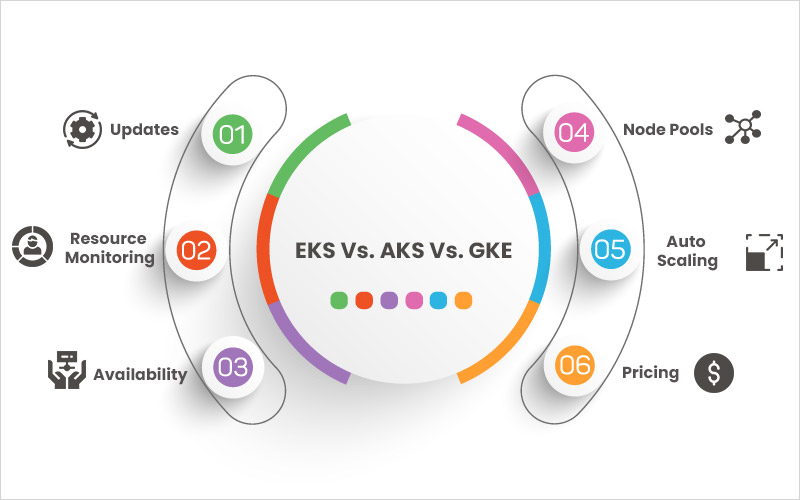
Updates
It appears Google loves its open-source product as GKE takes the cake here. GKE provides fully automated updates for the K8s clusters. The Kubernetes releases are also made available by Google in the engine. Coming in second is AKS, as the updates are installed with one click from the users.
Along with the regular updates, AKS solutions are secured by Azure Security Center, which has automated threat detection and disk encryption. EKS vs AKS lags in updates as it is challenging to update and involves multiple steps. The users of EKS Kubernetes would have to punch in the command-line instructions, which would initiate the update. These steps are required for EKS Vs. AKS Vs. GKE when you are managing the updates for nodes.
Resource Monitoring
Resource monitoring at GKE is easy as Google Cloud comes with Stackdriver, a platform dedicated to K8s monitoring. With Stackdriver, one monitors the nodes and all Kubernetes components inside the platform. Moreover, all this monitoring can be done without undertaking any extra steps. This is the edge GKE possesses over AKS EKS.
AKS does provide monitoring abilities to its users. One can monitor the health of every K8s container and keep a weather eye on every component utilizing Application Insights. The latter is complicated as one must configure Istio, a service mesh solution. Despite this disadvantage, both GKE and AKS outclass AWS’s EKS.
AWS doesn’t dole out any integrated monitoring tool. If one wants to monitor K8s components and containers, they would be disadvantaged as AKS AWS ropes in third-party monitoring tools.
Useful Link: ITOps vs DevOps vs NoOps Comparison: The Top 3 Power Tools in the Software Era
Availability
Microsoft tapped into its widespread established network and buttressed Azure and AKS EKS to position it better. Azure doesn’t try to pull punches to make it clear that it is available in more regions than any cloud provider. Azure has even forayed into Africa and recently expanded its well-founded footprint in India.
However, AWS is not far behind, which can be attributed to its age. Among all three competitors, AWS was the first to enter the cloud race, and it has 66 availability zones. And the footprint is only set to increase as Amazon plans to add 12 more zones to its arsenal. Considering its entry time, it is unsurprising that Google came in at the last spot. Google Cloud is available in 20 regions, and the IT company is paving the way for a more comprehensive network with three more regions.
Node Pools
In a cluster of K8s, a group of nodes that share the same configuration are referred to as a node pool. Node pools are vital as they allow the cluster to function with different machines for various workloads. The users can designate the node pools with the service they want to deploy them with.
Google and AWS have supported node pools for more than four years now. Although it is late to the game, AKS allows its users to run 100 nodes per node pool. This is the same number of nodes one can run on AWS’s EKS.
Auto-Scaling
One of the standout features of Kubernetes is its seamless ability to scale the nodes. This enables the cluster to trim down resource usage. This saves time and is cost-effective as heavy and lean demands are met with the right resources. Additionally, Auto-scaling can be utilized to tweak the resource utilization plans for the present and future.
GKE provides the most reliable auto-scalable solution. The engine users must mention their desired virtual machines’ size and the number of nodes on the node pool. Google Cloud takes care of the rest and is a hassle-free operation.
EKS sprinted to the second spot as autoscaling K8s is relatively easy as it only takes a few manual steps. As you may have guessed, AKS was chronologically last in the game. However, its autoscaling is better than the other two as its cluster autoscaler monitors several pods that couldn’t be scheduled on nodes for various reasons. The number of nodes is automatically increased by the tool. One can tweak the cluster settings with a few manual steps.
Pricing
GKE and AKS have scored this round as they provide cluster management for free. This effectively means that master node management and infrastructure required for the implementation are not billed. However, the rest of the charges apply to the virtual machine usage, bandwidth, and other frills.
EKS lags in this area as it bills 10 cents/hour/control plane. Additionally, USD 0.20 per hour is billed for every deployed cluster. Although it sounds less, it dents your wallet more than you know. Should pricing be a dealbreaker for you, maybe consider AKS or GKE.
Useful Link: Waterfall Vs. Agile Vs. DevOps- Which Production Method Should You Take?
Conclusion
In this blog post, we acknowledge the uniqueness of each organization’s requirements while recognizing that GKE, AKS, and EKS are dependable platforms that deliver results. It’s important to note that multi-cloud support is still in its early stages, and each platform offers a distinct set of tools tailored to their respective cloud environments.
This understanding is a driving force behind the choice of many Fortune 500 companies and emerging enterprises to partner with Veritis, a distinguished recipient of prestigious accolades like the Stevie Awards and the Globee Business Award. Veritis prides itself on providing cost-effective, customized solutions that enhance productivity without compromising quality. Feel free to contact us and discover a solution to empower your organization to achieve new heights.
Looking for Support? Schedule A Call
Additional Resources:
- ‘Kubernetes-as-a-Service’ for Container Infrastructure
- All You Need to Know About Kubernetes Deployment Strategies
- How to Optimize Kubernetes Autoscaler to Better Business
- Kubernetes Adoption: The Prime Drivers and Challenges
- Vertical Scaling Vs. Horizontal Scaling: Which One Should You Opt For?
- Outcome Matters: Measuring DevOps Success in 4 Ways!